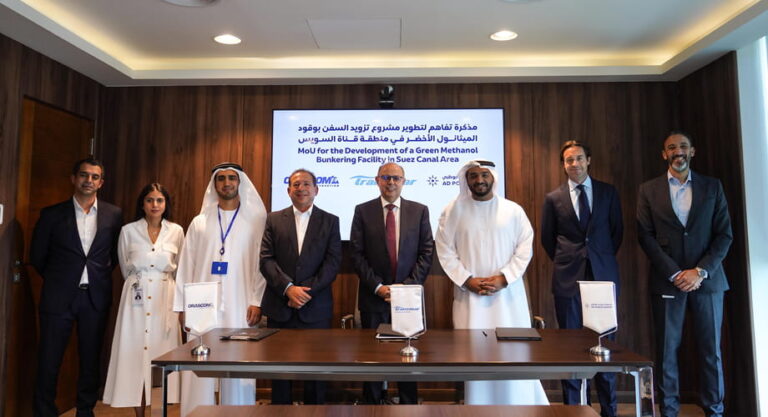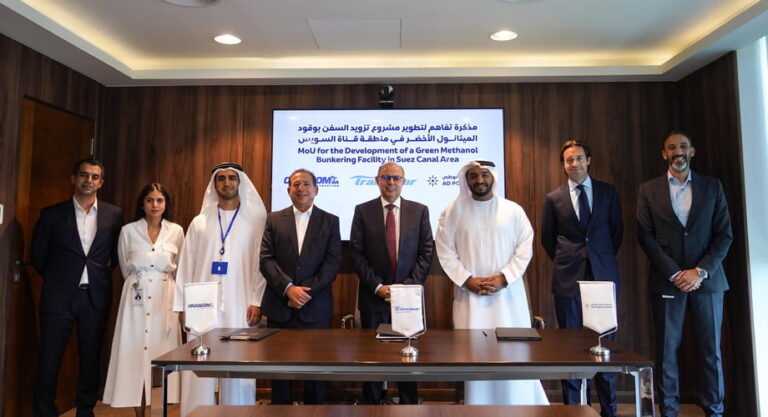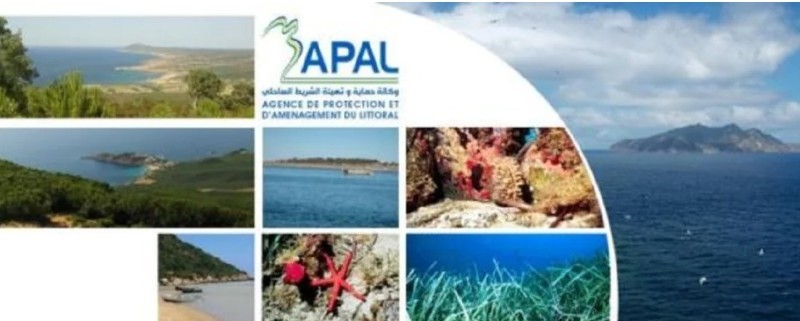UAE-based AD Ports Group has signed a memorandum of understanding (MoU) with Transmar, a container shipping line and terminal operator in the MENA region, and Orascom Construction, a global engineering and construction contractor, to develop a green methanol storage and export facility in Egypt that will supply low-carbon fuel for maritime transport.

Under the MoU, the consortium aims to develop a facility that will provide bunkering solutions for industry players who have ordered green methanol-powered vessels.
The deal is also in line with AD Ports Group’s overall decarbonization strategy and expansion in clean energy liquid bulk storage.
Ammar Mubarak Al Shaiba, CEO of Maritime & Shipping Cluster, AD Ports Group, said: “By signing this MoU with Orascom Construction who have vast international experience in bulk liquid terminals for Methanol storage, and Transmar, who have decades of expertise in this region and within terminal operations, AD Ports Group and its subsidiaries are taking a significant step towards the sustainable future of energy.
“This initiative not only aligns with the UAE’s decarbonisation goals but also accelerates the energy transition in shipping, positioning us at the forefront of the green hydrogen revolution and enabling us to contribute to global environmental stewardship and economic diversification.”
It is estimated that more than 100 methanol-fueled ships will be in service from 2026, representing around a million tonnes of additional methanol demand, and according to Drewry and Clarksons, the methanol-fueled vessel fleet will grow from 2% to 14% of the global fleet based on orders already placed.
In February 2024, DNV Maritime presented data showing that, at the time, 23 methanol-fueled ships had been to the Alternative Fuels for Shipping Index (AFI) database since the beginning of the year.
Methanol also proved the most popular alternative fuel choice in 2023 with 138 ships ordered (excluding methanol carriers), a steep increase compared to the 35 ordered to run on this fuel the year before. Container ships (106) dominated this segment, followed by bulk carriers (13) and car carriers (10).




